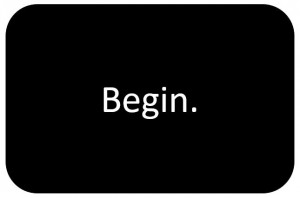You may be incredibly bright, but showing your intelligence in the moment can be challenging, like if you’re called on unexpectedly in a meeting. The most significant barrier to communicating effectively and sounding smart is the fact that we all get nervous, says Matt Abrahams, author of Think Faster, Talk Smarter: How to Speak Successfully When You’re Put on the Spot and host of the Think Fast, Talk Smart podcast.
“Anxiety is human and ingrained into who we are,” he says. “Whenever we put ourselves out there, we risk our status. If we do something poorly, our status gets reduced.”
Instead of leaving your performance to chance, Abrahams says there are tactics you can practice that will help you sound more competent in your next meeting.
Maximize Mediocrity
To reduce anxiety, you need to let go of your need to be perfect when you communicate.
“We want to give the right answer or the best feedback or be the most interesting person in small talk,” Abrahams says. “The reality is there is no right way to do any of those things.”
Abrahams lectures on organizational behavior at Stanford University’s Graduate School of Business and tells students that the goal is to maximize mediocrity. “You should see their jaws drop because nobody’s ever told students to do that,” he says. “The point is, when you put a lot of pressure on yourself to do it right, you make it harder to do.”
Consider your brain’s cognitive load to be like a computer, Abrahams suggests. “If your laptop or phone has lots of apps running, it slows down,” he says. “Your brain is the same way. If I’m judging and evaluating myself to the extreme because I want it to be right, I have less bandwidth to actually do it at all. Turn that volume down.”
Strive for Connection
Rather than focusing on yourself and delivering the right answer, Abrahams recommends focusing on the people you’re talking to. “It’s about connection, not perfection,” he says. “Communication is all about shared experience, collaboration, and making things common. In fact, the definition of communication is to ‘make common.’ When we focus on that rather than saying it right, we take the pressure off ourselves.”
Meet the audience where they are with what they need to know. Too often we tend to say too much, especially if we’re passionate about what we know. Think about what is relevant and the group’s attitudes and resistance points.
“You might come at the wrong level,” Abrahams says. “We’ve all had that situation where somebody comes in either too low level or high level. We really need to reflect on our audience and what they know.”
Lean on Structure
When asked an off-the-cuff question, it’s easy to start listing information that pops into your head. People often ramble when they’re nervous, but it distracts your audience from paying attention, Abrahams says.
Our brains are wired for structure and look for a beginning, a middle, and an end. By leveraging a structure, you can deliver an answer in a way that makes you sound more intelligent.
One example of structure is “problem, solution, benefit.” Start with the problem or opportunity, give ideas on how to solve or take advantage of it, and share the benefits of taking your approach. This structure focuses on the goal. Other structures include “compare and contrast,” “past, present, and future,” and “information, emotion, and action.”
“Don’t kill your audience with bullet points,” Abrahams advises. “If I’m just listing information, I am making this a puzzle for you to put together. If I leverage structure, I make it easier for you to process. My mother has a saying, ‘Tell me the time. Don’t build me the clock.’ Many of us are clock builders.”
Packaging information makes it easy for someone to understand your point, and when you make it easy for the audience, you come across as smarter.
The irony about spontaneous speaking is that you must prepare, Abrahams says, noting, “I use the example of an athlete. An athlete in the moment playing the game is happening spontaneously, but they’re relying on techniques and practices and drills. It’s the same attitude: The only way you get better at communication is repetition, reflection, and practice.”
(3)










